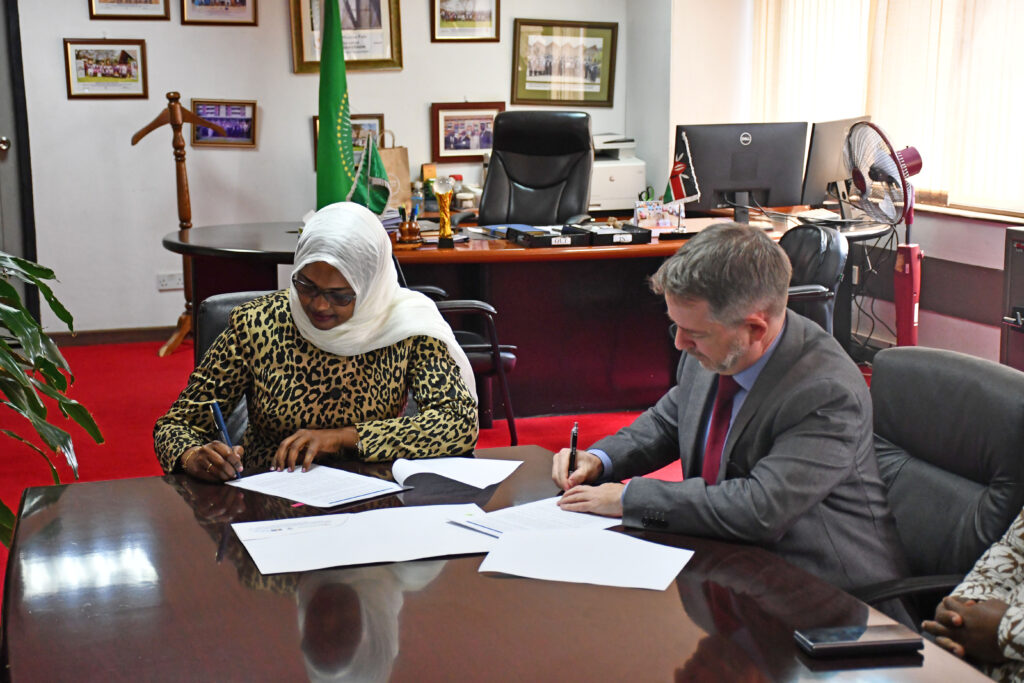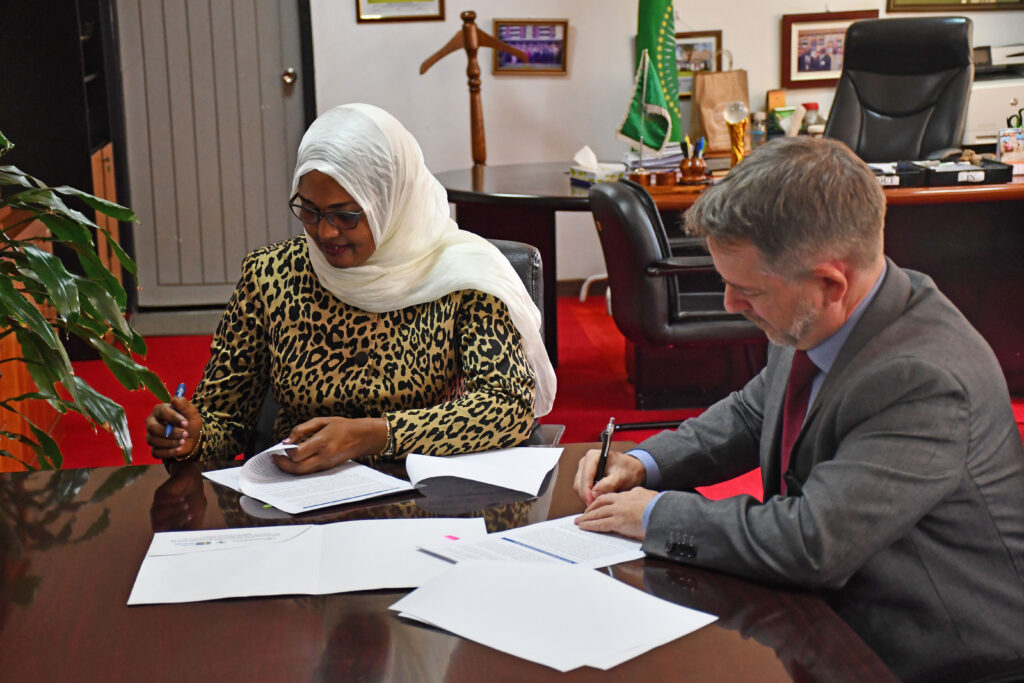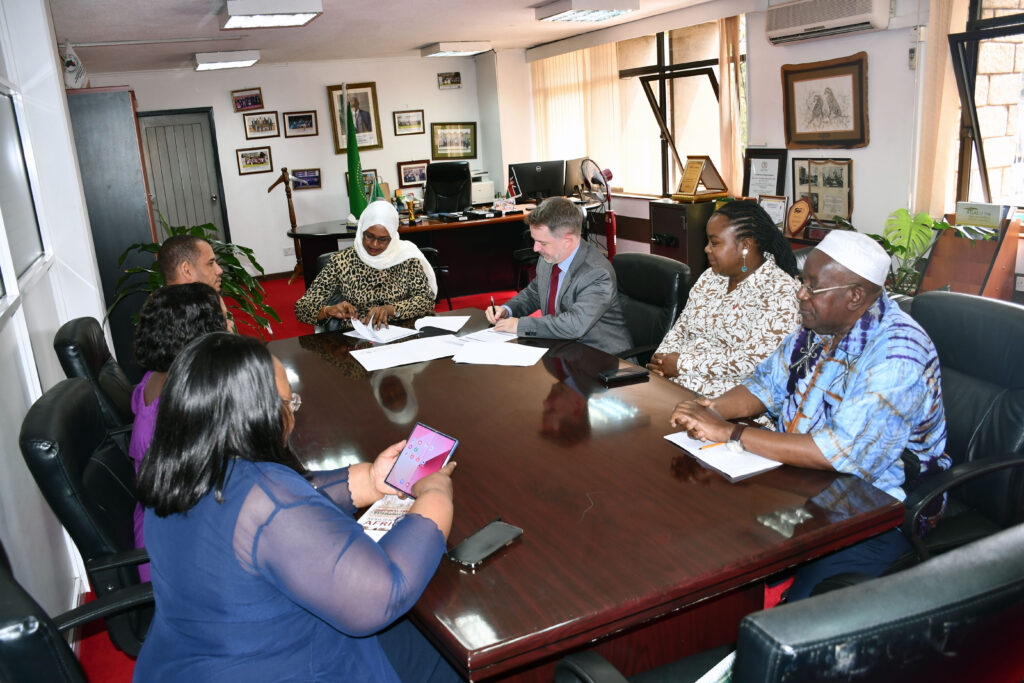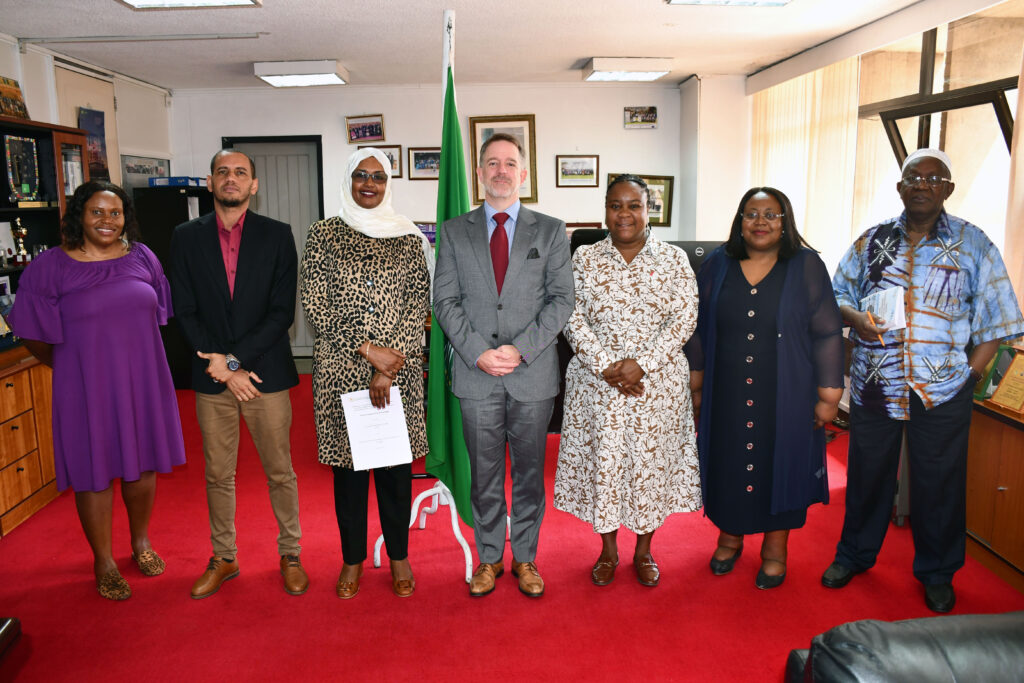AU-IBAR and FiTI sign collaboration agreement to advance fisheries transparency in African Union Member States
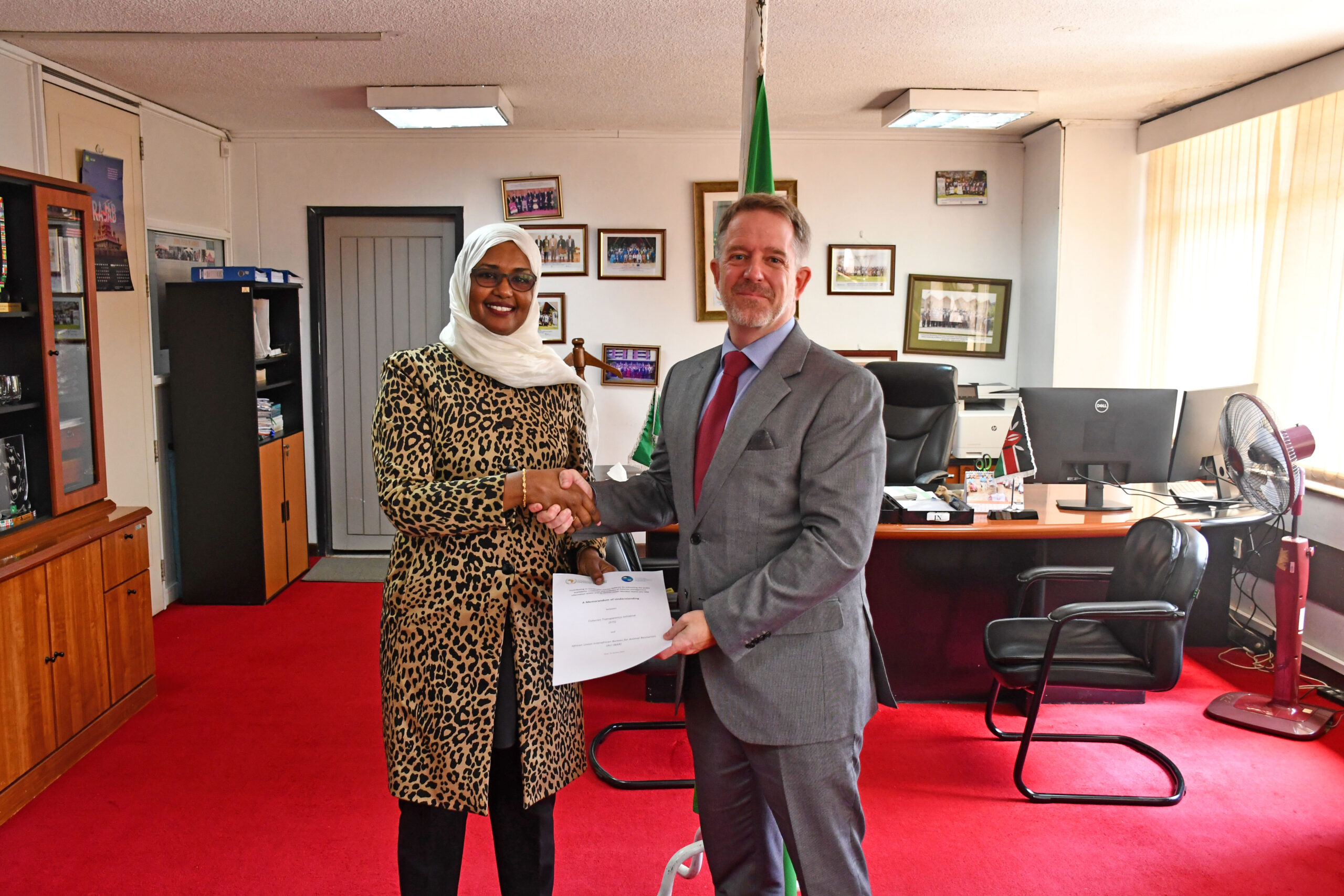
16 January 2025, Nairobi/Kenya. The Fisheries Transparency Initiative (FiTI) and the African Union Inter-African Bureau for Animal Resources (AU-IBAR) signed a Memorandum of Understanding (MoU) to formally document its partnership in enhancing the public accessibility, credibility, and usability of marine fisheries management information in African Union Member States. The MoU was signed by Dr. Huyam Ahmed, Director and Head of Mission of AU-IBAR and FiTI’s Executive Director, Sven Biermann, during a brief ceremony at AU-IBAR’s headquarter in Nairobi.
The agreement clearly acknowledges that many coastal countries, island nations and Small Island Developing States across the African continent have extensive and very valuable marine fish resources, but at the same time, fish stocks are being fished at biologically unsustainable levels. The need to manage Africa’s marine resources sustainably – balancing economic, social and environmental interests – is urgent and transparency is a crucial element to manage and govern fisheries for the wellbeing and prosperity of African citizens.
Today’s signing of an MoU marks the culmination of extensive discussions between both Parties during recent months, including during the 8th Conference of Ministers Responsible for Oceans, Inland Waters, and Fisheries from the Organization of African, Caribbean, and Pacific States (OACPS) in September 2024 in Dar es Salaam, Tanzania
The MoU sets out three clear objectives, responsibilities and collaboration parameters for this partnership, including to:
- Obtain public commitments to implement the FiTI from the governments of at least five African coastal countries or island nations not yet engaged in the FiTI process;
- Improve national and regional capacities for data collection, analysis and dissemination of marine fisheries;
- Increase the impact of transparency on fisheries governance by supporting public debates and enhancing participatory policy-making procedures for non-governmental stakeholders (such as civil society, small-scale fishers including women groups).
Mr Biermann, FiTI’s Executive Director, noted: “AU-IBAR’s technical expertise in fisheries across the African continent and its convening power as a long-term trust partner makes this collaboration highly important for us to further advance our approach to open, participatory governance of fisheries resources. Nine African countries are already implementing the FiTI Standard [i.e. Mauritania, Seychelles, Cabo Verde, Madagascar, Sao Tome and Principe, Guinea, Comoros, Ghana, Sierra Leone] and we are looking forward to collaborating with AU-IBAR to not only increase the number of African countries committed to fisheries transparency, but also that an increase in public access to information leads to tangible benefits for those that depend on a healthy marine environment.”
The FiTI also met with other stakeholders in Nairobi to discuss the advancement of transparency in fisheries management in Kenya and the wider region, including colleagues from SWIOTUNA, a regional marine-related network with its membership consisting of Civil Society Organizations (CSOs), community fisheries collective action units such as Beach Management Units (BMUs) and Private Sector from the coastal nations and island states of Madagascar, Seychelles, Mauritius, Comoros, Mozambique, Tanzania and Kenya.
